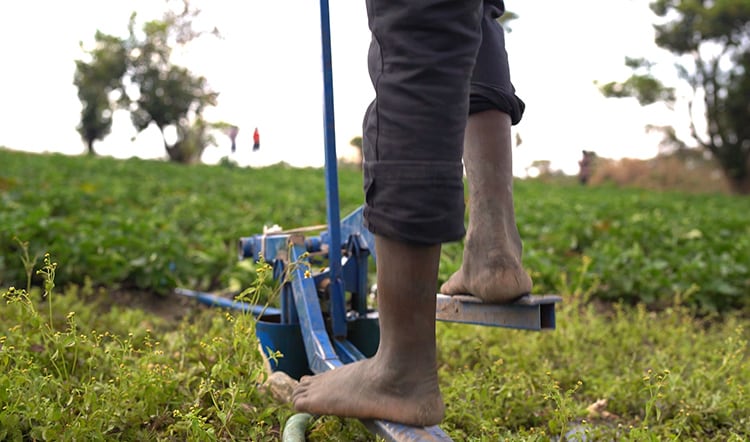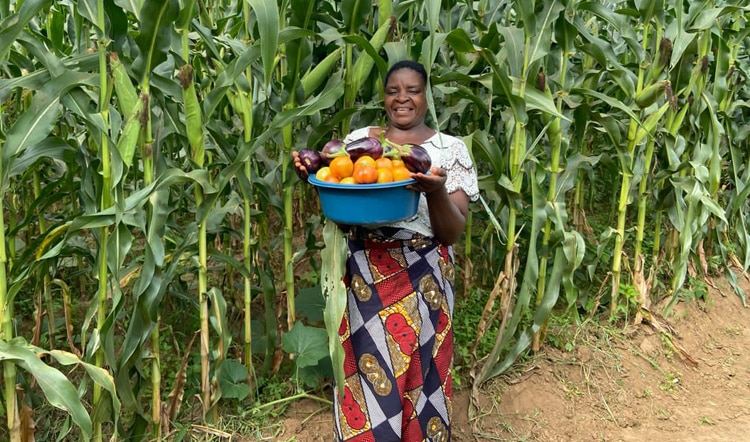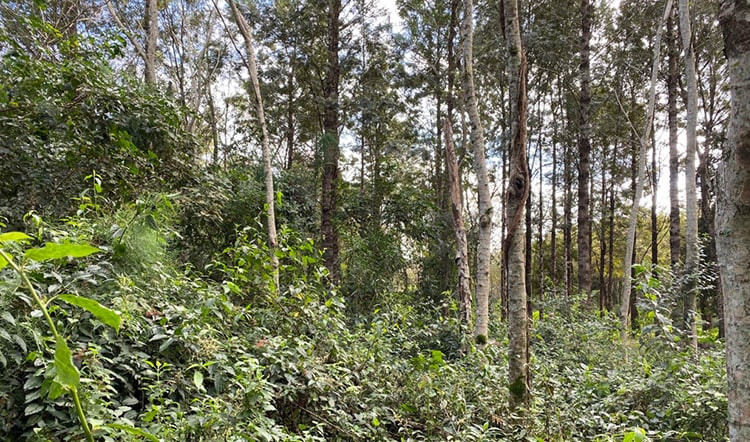Farmers know how crucial water is to the success of farming, from nourishing livestock to combatting drought.
But where access is limited, especially during the warmer months, the process of sourcing and transporting water can be a challenge.
Simple solutions, brilliant results
In 2018, Philip Morris International (PMI) began supporting the Treadle Pump program, which was created by the network of Universal Leaf Tobacco (ULT) farmers in Mozambique. The aim was to make it easier for local farmers to access water to irrigate their land—freeing them from dependence on seasonal rains and long walks with heavy watering cans. Using a stepping motion, farmers can run treadle suction pumps at a fraction of the cost of motorized versions.
“Before the treadle pumps, we’d return home absolutely exhausted after carrying heavy watering cans all day,” said Christina Lino, a wife of one of the farmers in the program. “They make our job so much easier.”
“I was struggling to irrigate my crops before I received the treadle pump,” said farmer Margaret Matias. “Sometimes, the crops dried out because we just couldn’t water them all, so I’m grateful for the treadle pump. It helps me a lot.”
An additional added benefit of the program was reducing the amount of physical labor needed to transport water for irrigating seedbeds, a task that can sometimes fall to the children of farm laborers.
At PMI, we maintain a relentless focus on preventing incidents of child labor—and we have programs in place to ensure that immediate action is taken when they arise. Our objective is to eradicate child labor cases in our tobacco supply chain by 2025. Whilst we are confident that child labor (as a systemic issue in our supply chain) has been eradicated, we acknowledge that isolated cases might persist due to farmer turnover or unintentional misbehaviors, and we will remain alert and tackle them promptly when identified.
Additional income, and more diverse farms
The program started as an initiative developed by ULT, which was inspired by PMI’s Agricultural Labor Practices (ALP) code. It transformed and expanded in 2019, with over 80 percent of the support provided by PMI. It was found that the advantages offered by the treadle pumps meant additional crops could be grown in the winter. The farmers could then sell them to create a new income stream for them and their families.
“In 2020, iDE conducted an impact assessment,” said Crocus Hamsini, Crop Diversification Project Analyst for PMI. “It was concluded the treadle pumps provided an opportunity for farmers to grow at least two cycles of winter crops and greatly contribute to their income.”
In fact, according to the assessment conducted by iDE, treadle pumps were estimated to generate up to USD 400 of additional annual income per year. This sum would enable families to buy a bicycle—a crucial mode of local transport in rural locations—and up to four goats, depending on the size and breed.
“The crops I grow off-season are sweet potatoes, beans, onions, tomatoes, garlic, and cabbage,” said Cosme Chikuse, a farmer in the program. “With the treadle pump, I can grow three crops each year and the harvest is abundant, so money is less of a problem, because each crop brings in an income.”
Takawira Matanga, Diversification Supervisor, Mozambique Leaf Tobacco, echoed this: “Farmers are benefiting from the treadle pumps by diversifying their crops. Tobacco is their main crop, but they’re growing other crops too, and not relying on the rainy season.”
Looking to the future
The program’s success means the number of farmers using the treadle pumps has grown exponentially. Since 2018, over 7,300 treadle pumps have been installed. In 2024, a further 1,264 beneficiaries are set to receive a treadle pump.
For Hamsini, this is a program with potential for expansion: “Treadle pumps may be considered a low-cost initiative, but we see great opportunities in terms of the impact and benefits that they bring to farmers.”







